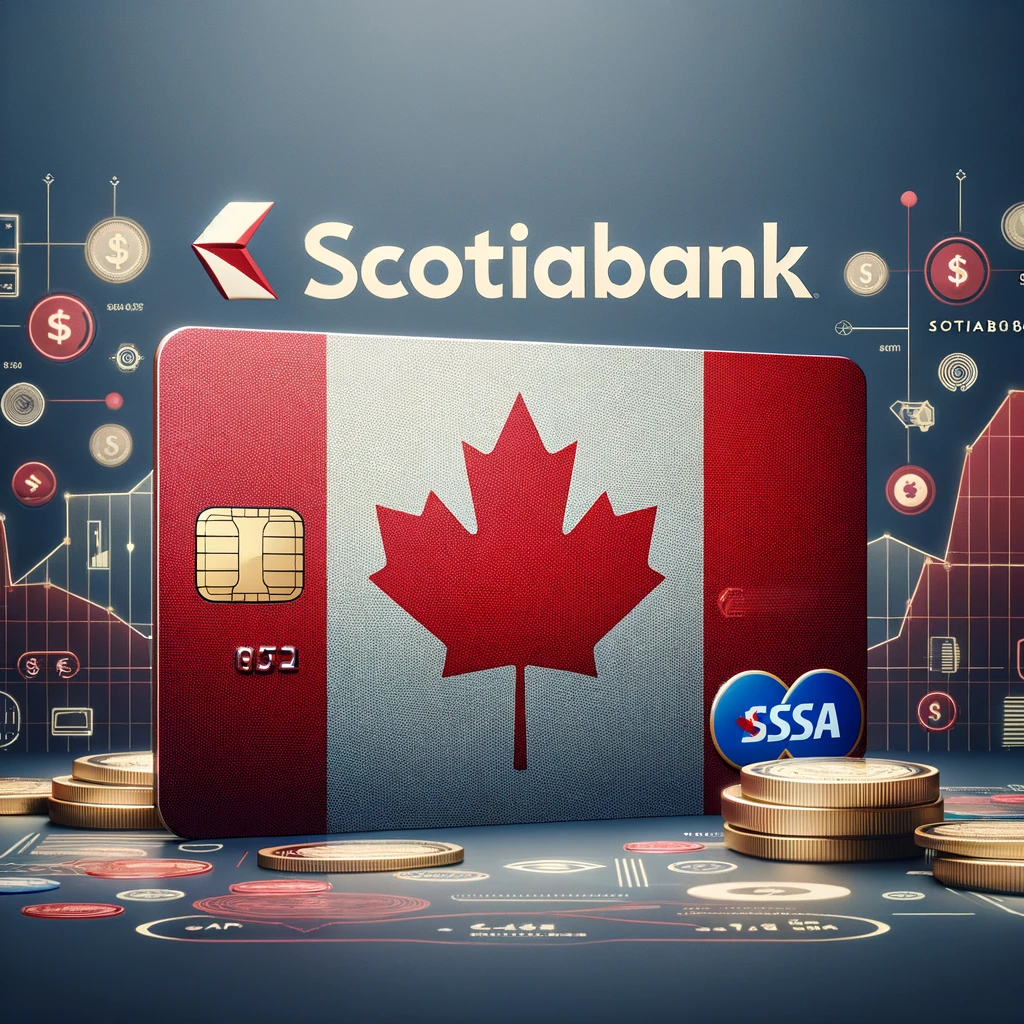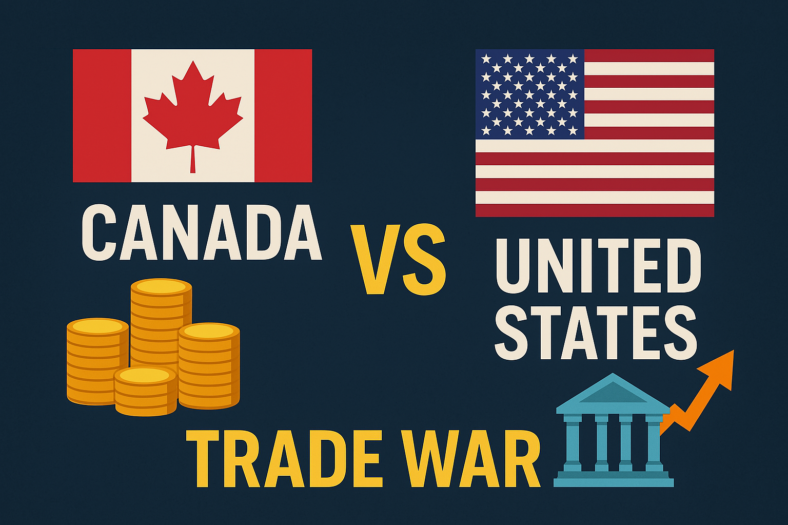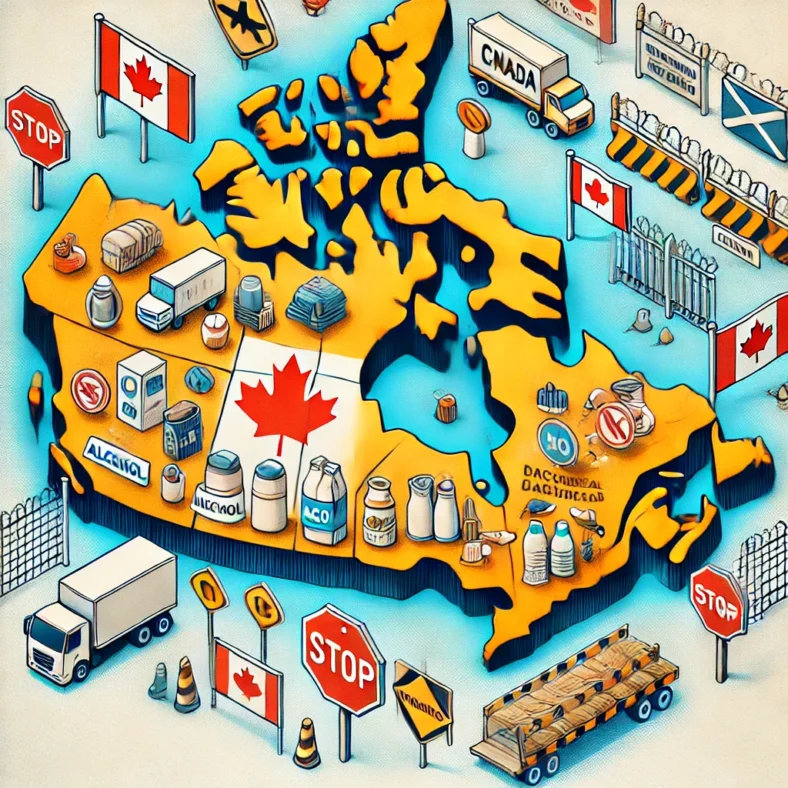Scotiabank offers an array of credit cards designed to cater to different spending habits, travel preferences, and financial goals. Whether you’re looking to earn rewards on everyday purchases, enjoy travel benefits, or build your credit history, Scotiabank has a credit card that suits your needs.
In this comprehensive guide, we’ll delve into the best Scotiabank credit cards available in Canada, exploring their features, benefits, rewards programs, fees, and eligibility criteria. By the end of this guide, you’ll have a thorough understanding of the top Scotiabank credit cards and be equipped to make an informed decision that aligns with your financial objectives. Let’s embark on this journey to discover the ideal Scotiabank credit card tailored just for you.
Best Scotiabank Cards – Our Top Picks
| Compare | Ratestead Rating | Annual Fee | Annual Rewards | Welcome Bonus | Learn More |
|---|
| APPLY NOW | /10 |
Who are Scotiabank and how do their credit cards work?
Scotiabank, officially known as The Bank of Nova Scotia, is one of Canada’s largest and most established banks, with a rich history dating back over 180 years. Founded in 1832 in Halifax, Nova Scotia, Scotiabank has grown into an international financial institution with a presence in over 50 countries worldwide. Renowned for its commitment to innovation, customer service, and community involvement, Scotiabank offers a wide range of banking products and services, including credit cards.
Scotiabank credit cards function like traditional credit cards, allowing cardholders to make purchases and access credit up to a predetermined limit. However, what sets Scotiabank credit cards apart are their unique features, rewards programs, and benefits tailored to meet the diverse needs and preferences of consumers.
Here’s how Scotiabank credit cards typically work:
Application Process: To obtain a Scotiabank credit card, individuals must apply online, in-branch, or through other designated channels. Applicants are required to provide personal information, such as their name, address, income, and employment details, for the bank to assess their eligibility.
Credit Limit: Upon approval, each cardholder is assigned a credit limit, which represents the maximum amount they can borrow using the credit card. The credit limit is determined based on various factors, including the applicant’s creditworthiness, income, and existing financial obligations.
Making Purchases: Cardholders can use their Scotiabank credit cards to make purchases at millions of locations worldwide where Visa or Mastercard is accepted. They can also use their cards for online shopping, bill payments, and other transactions.
Repayment: Cardholders are required to repay the borrowed funds, either in full by the due date or through minimum monthly payments. Failure to make timely payments may result in interest charges, late fees, and negative impacts on the cardholder’s credit score.
Rewards and Benefits: Scotiabank credit cards often come with rewards programs that allow cardholders to earn points, cashback, or travel rewards on their purchases. Additionally, many cards offer perks such as travel insurance, purchase protection, concierge services, and exclusive access to events and experiences.
Fees and Charges: While Scotiabank credit cards offer numerous benefits, they may also come with annual fees, interest rates, foreign transaction fees, and other charges. It’s essential for cardholders to review the terms and conditions of their cards to understand all applicable fees and charges.
Overall, Scotiabank credit cards provide consumers with convenient access to credit, rewards, and a range of benefits designed to enhance their financial well-being and lifestyle. By understanding how Scotiabank credit cards work and choosing the right card based on their needs and preferences, individuals can maximize the value they derive from their credit card experience.
Pros and cons of Scotiabank credit cards
Pros of Scotiabank Credit Cards:
Diverse Range of Cards: Scotiabank offers a diverse selection of credit cards catering to various lifestyles and financial needs. Whether you’re looking for cashback rewards, travel benefits, or building credit history, there’s a Scotiabank card suited for you.
Generous Rewards Programs: Many Scotiabank credit cards come with generous rewards programs that allow cardholders to earn points, cashback, or travel rewards on their everyday purchases. These rewards can be redeemed for a wide range of options, including travel, merchandise, statement credits, and more.
Travel Benefits: Several Scotiabank credit cards offer extensive travel benefits, such as travel insurance coverage, airport lounge access, and no foreign transaction fees. These perks can help cardholders save money and enjoy a seamless travel experience.
Introductory Offers: Scotiabank frequently provides introductory offers for new cardholders, such as bonus rewards points, waived annual fees for the first year, or promotional interest rates on balance transfers and purchases. These offers can add significant value to the cardholder’s experience.
Flexibility and Convenience: Scotiabank credit cards offer flexibility and convenience, allowing cardholders to make purchases worldwide, access credit when needed, and manage their accounts online or through mobile banking apps.
Cons of Scotiabank Credit Cards:
Annual Fees: Many Scotiabank credit cards come with annual fees, which can range from modest to substantial depending on the card’s features and benefits. While the rewards and benefits may offset the annual fee for some cardholders, others may find it burdensome, especially if they don’t utilize the card’s features extensively.
Interest Rates: Like most credit cards, Scotiabank cards may have relatively high-interest rates, especially for cardholders who carry balances from month to month. Paying interest on outstanding balances can negate the value of rewards earned and lead to significant long-term costs.
Eligibility Requirements: Some of Scotiabank’s premium credit cards may have stringent eligibility requirements, such as minimum income thresholds or excellent credit scores. This can limit access to certain cards for individuals who don’t meet the criteria.
Foreign Transaction Fees: While some Scotiabank credit cards waive foreign transaction fees, others may charge a fee for purchases made in foreign currencies. These fees can add up, particularly for frequent travelers or individuals who shop online internationally.
Limited Acceptance: While Scotiabank credit cards are widely accepted globally, there may be instances where merchants or establishments don’t accept Visa or Mastercard, limiting the cardholder’s purchasing options.
Overall, while Scotiabank credit cards offer a host of benefits and rewards, it’s essential for individuals to carefully consider the fees, interest rates, and eligibility criteria associated with each card to determine its suitability for their financial situation and spending habits.
Types of Scotiabank credit cards
Scotiabank offers a wide range of credit cards in Canada, each tailored to meet different financial needs and lifestyles. Here are some of the main types of Scotiabank credit cards available:
Cash Back Cards: These cards offer cash back rewards on eligible purchases, allowing cardholders to earn a percentage of their spending back as cash. Cash back can typically be redeemed as a statement credit or deposited into a bank account.
Travel Rewards Cards: Scotiabank’s travel rewards cards are designed for frequent travelers, offering points or miles for every dollar spent. These rewards can be redeemed for flights, hotel stays, car rentals, and other travel-related expenses.
Low Interest Cards: Low interest credit cards from Scotiabank come with lower interest rates compared to standard credit cards, making them ideal for individuals who carry a balance from month to month and want to minimize interest charges.
No-Fee Cards: Scotiabank offers credit cards with no annual fees, providing basic benefits and rewards without the cost of membership. These cards are suitable for individuals who want to avoid annual fees while still enjoying some rewards and benefits.
Premium Cards: Scotiabank’s premium credit cards come with enhanced benefits, exclusive perks, and higher rewards earning rates. These cards often have higher annual fees but offer valuable features such as travel insurance, airport lounge access, concierge services, and more.
Student Cards: Designed for students, these credit cards offer features and benefits tailored to the needs of young adults, such as rewards on everyday purchases, no annual fees, and tools to help build credit responsibly.
Secured Cards: Secured credit cards are a good option for individuals looking to establish or rebuild their credit. These cards require a security deposit, which serves as collateral, and often come with lower credit limits and basic features.
Business Cards: Scotiabank offers credit cards specifically designed for small business owners, providing tools and benefits to help manage business expenses, track spending, and earn rewards on business purchases.
Each type of Scotiabank credit card comes with its own set of features, benefits, and eligibility criteria, allowing consumers to choose the card that best fits their financial goals and lifestyle preferences.
How to find and choose the best Scotiabank credit cards in Canada
Finding and choosing the best Scotiabank credit card in Canada involves considering several factors to ensure it aligns with your financial needs, spending habits, and lifestyle preferences. Here’s a step-by-step guide to help you find and choose the best Scotiabank credit card:
Assess Your Needs: Begin by evaluating your financial situation, spending habits, and goals. Determine what you want from a credit card—whether it’s earning rewards, saving on interest, accessing travel benefits, or building credit history.
Research Scotiabank’s Credit Cards: Visit Scotiabank’s website or contact a Scotiabank representative to explore the range of credit cards available. Review the features, benefits, rewards programs, fees, and eligibility criteria of each card to understand which ones align with your needs.
Consider Your Spending Habits: Choose a credit card that complements your spending habits. If you frequently travel, a travel rewards card with benefits like airport lounge access and travel insurance may be suitable. For everyday purchases, a cash back card offering rewards on groceries, gas, and dining might be more beneficial.
Compare Rewards Programs: Compare the rewards programs offered by different Scotiabank credit cards. Consider factors such as the earn rate, redemption options, flexibility, and value of the rewards. Determine which rewards program best suits your preferences and spending patterns.
Evaluate Fees and Interest Rates: Pay close attention to the fees associated with each credit card, including annual fees, foreign transaction fees, and balance transfer fees. Additionally, consider the interest rates charged on purchases and cash advances. Choose a card with fees and rates that align with your budget and financial goals.
Review Additional Benefits: Look beyond rewards and fees to consider the additional benefits offered by Scotiabank credit cards. These may include travel insurance, purchase protection, extended warranty coverage, concierge services, and more. Determine which benefits are important to you and prioritize cards that offer them.
Check Eligibility Requirements: Review the eligibility criteria for each Scotiabank credit card, including minimum income requirements and credit score thresholds. Ensure that you meet the criteria before applying to increase your chances of approval.
Read Reviews and Seek Recommendations: Read reviews from other cardholders and seek recommendations from friends, family, or financial advisors who have experience with Scotiabank credit cards. Their insights can provide valuable perspectives and help you make an informed decision.
Apply for the Card: Once you’ve identified the best Scotiabank credit card for your needs, complete the application process online, in-branch, or through other designated channels. Provide accurate information and documentation as required to expedite the approval process.
Manage Your Card Responsibly: Upon approval, use your Scotiabank credit card responsibly by making timely payments, staying within your credit limit, and maximizing the benefits and rewards offered. Regularly monitor your account activity and review statements to track your spending and rewards accumulation.
By following these steps and conducting thorough research, you can find and choose the best Scotiabank credit card in Canada that suits your financial goals and lifestyle preferences.
How to apply for a Scotiabank credit card in Canada
Applying for a Scotiabank credit card in Canada is a straightforward process that can be completed online, in-branch, or through other designated channels. Here’s a step-by-step guide on how to apply for a Scotiabank credit card:
Research Scotiabank Credit Cards: Begin by researching the range of credit cards offered by Scotiabank to identify the card that best suits your financial needs, spending habits, and lifestyle preferences. Consider factors such as rewards programs, benefits, fees, and eligibility criteria.
Gather Required Information: Before starting the application process, gather the necessary information and documentation. This may include your personal details (name, address, date of birth), contact information, employment details (income, employer), and financial information (assets, liabilities).
Choose Application Method: Scotiabank offers multiple methods for applying for a credit card:
- Online: Visit Scotiabank’s official website and navigate to the credit cards section. Select the desired credit card and click on the “Apply Now” button to initiate the online application process.
- In-Branch: Visit a Scotiabank branch near you and speak with a banking representative. They will guide you through the application process and assist with any questions or concerns you may have.
- Phone: Contact Scotiabank’s customer service hotline and request assistance with the credit card application process. A representative will walk you through the necessary steps and help you complete the application over the phone.
Complete the Application: Regardless of the application method chosen, you will need to complete the credit card application form accurately and provide all required information. Be prepared to answer questions about your personal details, employment status, income, housing situation, and financial history.
Review Terms and Conditions: Carefully review the terms and conditions associated with the credit card you’re applying for, including interest rates, fees, rewards programs, and any additional benefits or limitations. Make sure you understand the terms of the agreement before proceeding with the application.
Submit Application: Once you’ve completed the application form and reviewed the terms and conditions, submit your application to Scotiabank for review and processing. If applying online, you may receive an instant decision on your application, while applications submitted in-branch or by phone may take longer to process.
Await Approval: After submitting your application, await a decision from Scotiabank regarding the approval status. If your application is approved, you will receive further instructions on how to activate your credit card and access your account.
Activate Your Card: Upon approval, follow the instructions provided by Scotiabank to activate your credit card. This may involve calling a dedicated activation hotline, logging into your online banking account, or visiting a Scotiabank ATM.
Start Using Your Card: Once your credit card is activated, you can start using it to make purchases, earn rewards, and enjoy the benefits and features offered by Scotiabank.
By following these steps, you can successfully apply for a Scotiabank credit card in Canada and begin enjoying the benefits and rewards it provides. If you have any questions or need assistance during the application process, don’t hesitate to reach out to Scotiabank’s customer service team for support.
What is credit score and how much do I need for a Scotiabank credit card
A credit score is a numerical representation of an individual’s creditworthiness, indicating their likelihood of repaying borrowed funds based on their credit history. Credit scores are calculated by credit bureaus using data from credit reports, which include information about an individual’s borrowing and repayment behavior, such as credit card payments, loan repayments, and outstanding debts.
In Canada, credit scores typically range from 300 to 900, with higher scores indicating lower credit risk and greater creditworthiness. Credit scores are used by lenders, including banks and credit card issuers like Scotiabank, to assess an individual’s creditworthiness when considering applications for credit cards, loans, mortgages, and other forms of credit.
The specific credit score required to qualify for a Scotiabank credit card can vary depending on the card’s features, benefits, and eligibility criteria. Generally, Scotiabank’s premium credit cards with enhanced benefits and rewards may require higher credit scores for approval, while basic or entry-level cards may have more lenient requirements.
Although Scotiabank does not publicly disclose specific credit score thresholds for its credit cards, a good credit score is generally considered to be above 700 in Canada. However, even individuals with lower credit scores may still be eligible for certain Scotiabank credit cards, particularly secured or student cards designed for individuals with limited credit history or past credit issues.
In addition to credit score, Scotiabank may also consider other factors when evaluating credit card applications, such as income, employment status, housing situation, and existing financial obligations. It’s essential to review the eligibility criteria for the specific Scotiabank credit card you’re interested in and ensure that you meet the requirements before applying.
If you’re unsure about your credit score or eligibility for a Scotiabank credit card, you can request a copy of your credit report from one of Canada’s major credit bureaus (Equifax or TransUnion) and review it for accuracy. You can also use online tools and resources provided by Scotiabank or other financial institutions to check your credit score and assess your creditworthiness before applying for a credit card.
What are common interest rates, fees and costs for Scotiabank credit cards?
Scotiabank offers a variety of credit cards in Canada, each with its own set of interest rates, fees, and costs. While specific rates and fees can vary depending on the card’s features and benefits, here are some common interest rates, fees, and costs associated with Scotiabank credit cards:
Interest Rates:
Purchase APR: The annual percentage rate (APR) applied to purchases made with the credit card. This rate is typically variable and can range from around 12% to 25% or higher, depending on the card and the cardholder’s creditworthiness.
Cash Advance APR: The APR applied to cash advances, such as ATM withdrawals, cash equivalent transactions, and balance transfers. Cash advance APRs are often higher than purchase APRs and may range from 20% to 30% or more.
Balance Transfer APR: Some Scotiabank credit cards offer promotional balance transfer rates for a limited time, allowing cardholders to transfer balances from other credit cards at a lower interest rate. These promotional rates may be as low as 0% for a specified period, after which they revert to the standard purchase APR.
Fees:
Annual Fee: Many Scotiabank credit cards charge an annual fee for membership, which typically ranges from $0 to $139 or more, depending on the card’s features and benefits. Premium cards with enhanced rewards and benefits often have higher annual fees, while basic or no-frills cards may have lower or no annual fees.
Foreign Transaction Fee: A fee charged for transactions made in foreign currencies, typically ranging from 2.5% to 3.5% of the transaction amount. Some Scotiabank credit cards waive foreign transaction fees, making them ideal for international travelers.
Cash Advance Fee: A fee charged for cash advances, typically calculated as a percentage of the transaction amount (e.g., 1% to 5%) or a flat fee (e.g., $3 to $5) per transaction.
Late Payment Fee: A fee charged for late or missed payments, typically ranging from $25 to $40 or more, depending on the card and the province of residence.
Overlimit Fee: A fee charged when the cardholder exceeds their credit limit, typically ranging from $25 to $40 or more per occurrence.
Other Costs:
Interest Charges: If the cardholder carries a balance from month to month, they will incur interest charges based on the applicable APRs. Interest is typically calculated daily and added to the account balance.
Penalty APR: In addition to standard APRs, Scotiabank credit cards may impose a penalty APR if the cardholder fails to make timely payments or violates the terms of the card agreement. Penalty APRs are typically significantly higher than standard APRs and can increase the cost of carrying a balance.
Additional Cardholder Fees: Some Scotiabank credit cards allow cardholders to add authorized users to their accounts for an additional fee per authorized user.
It’s important for consumers to review the terms and conditions of any Scotiabank credit card they’re considering to understand all applicable interest rates, fees, and costs. By comparing the features, benefits, and costs of different cards, individuals can choose the Scotiabank credit card that best fits their financial needs and preferences.
Alternatives to Scotiabank credit cards
While Scotiabank offers a range of credit cards tailored to different needs and preferences, there are several alternatives to consider if you’re exploring options beyond Scotiabank. Here are some alternatives to Scotiabank credit cards available in Canada:
TD Credit Cards: TD Bank offers a variety of credit cards with rewards programs, travel benefits, low interest rates, and no annual fees. TD credit cards cater to different lifestyles and financial needs, providing options for earning cash back, travel rewards, or points on purchases.
RBC Credit Cards: Royal Bank of Canada (RBC) provides a diverse selection of credit cards with features such as cash back rewards, travel insurance, concierge services, and exclusive perks. RBC credit cards offer flexibility and benefits tailored to various spending habits and preferences.
CIBC Credit Cards: Canadian Imperial Bank of Commerce (CIBC) offers credit cards with rewards programs, travel benefits, and low interest rates. CIBC credit cards provide options for earning cash back, Aeroplan points, Aventura points, and more, catering to different consumer preferences.
BMO Credit Cards: Bank of Montreal (BMO) offers a range of credit cards with rewards programs, travel benefits, and features such as purchase protection and extended warranty coverage. BMO credit cards include options for earning cash back, AIR MILES rewards, and BMO Rewards points.
American Express Credit Cards: American Express provides a variety of credit cards with rewards programs, travel benefits, and exclusive perks. American Express credit cards offer options for earning Membership Rewards points, cash back, Aeroplan points, and Marriott Bonvoy points.
Capital One Credit Cards: Capital One offers credit cards with rewards programs, travel benefits, and features such as no foreign transaction fees and flexible redemption options. Capital One credit cards include options for earning cash back, travel rewards, and rewards points on purchases.
Tangerine Credit Card: Tangerine Bank offers a no-fee cash back credit card with customizable rewards categories, allowing cardholders to earn cash back on everyday purchases. The Tangerine credit card provides flexibility and simplicity in earning and redeeming cash back rewards.
MBNA Credit Cards: MBNA Canada offers a variety of credit cards with rewards programs, travel benefits, and features such as balance transfer offers and low introductory interest rates. MBNA credit cards cater to different spending habits and financial goals.
When considering alternatives to Scotiabank credit cards, it’s essential to compare the features, benefits, fees, interest rates, and rewards programs of each card to find the best option that aligns with your financial needs and preferences. Additionally, consider factors such as customer service, cardholder perks, and acceptance network when evaluating alternative credit card options.
FAQs about the best Scotiabank credit cards in Canada
Scotiabank offers several credit cards tailored for travel rewards, including the Scotiabank Passport Visa Infinite Card and the Scotiabank Gold American Express Card. These cards typically offer rewards on travel purchases, airport lounge access, travel insurance coverage, and no foreign transaction fees, making them ideal for frequent travelers.
For cash back rewards, the Scotiabank Momentum Visa Infinite Card is a popular choice. It offers accelerated cash back earnings on categories such as groceries, gas, dining, and recurring bill payments, allowing cardholders to maximize their cash back rewards on everyday purchases.
Scotiabank offers credit cards with low introductory interest rates on purchases and balance transfers, such as the Scotiabank Value Visa Card. These cards are suitable for individuals looking to save on interest charges and pay down existing balances at a lower rate.
Yes, Scotiabank offers credit cards with no annual fees, such as the Scotiabank No-Fee Visa Card and the Scotiabank SCENE Visa Card. These cards provide basic benefits and rewards without the cost of membership, making them suitable for individuals looking to avoid annual fees.
Earning and redeeming rewards with Scotiabank credit cards varies depending on the card’s rewards program. Generally, cardholders earn rewards points, cash back, or miles on eligible purchases, which can be redeemed for travel, merchandise, statement credits, or gift cards through the card issuer’s rewards portal or redemption platform.
Yes, Scotiabank frequently provides introductory offers and promotions for new cardholders, such as bonus rewards points, waived annual fees for the first year, or promotional interest rates on balance transfers and purchases. These offers add value to the cardholder’s experience and may vary depending on the card and the time of application.
Scotiabank credit cards come with various additional benefits and features, including travel insurance coverage, purchase protection, extended warranty benefits, concierge services, and access to exclusive events and experiences. These perks enhance the cardholder’s overall experience and provide added value beyond rewards.
To apply for a Scotiabank credit card, individuals can visit Scotiabank’s website, apply in-branch, or contact customer service. Eligibility requirements typically include a minimum age (usually 18 or 19 years old), Canadian residency, and meeting income and credit score criteria. Applicants may also need to provide personal and financial information for credit assessment purposes.
In conclusion, Scotiabank credit cards in Canada offer a diverse range of options tailored to meet the varying financial needs, spending habits, and lifestyle preferences of consumers. Whether you’re looking to earn rewards on everyday purchases, enjoy travel benefits, save on interest charges, or build credit history, Scotiabank has a credit card designed to suit your individual requirements.
From premium travel rewards cards with exclusive perks to no-fee cash back cards providing simplicity and value, Scotiabank offers something for everyone. The extensive lineup of credit cards includes options for earning rewards points, cash back, miles, and more, with additional benefits such as travel insurance coverage, purchase protection, and concierge services enhancing the overall cardholder experience.
Moreover, Scotiabank frequently provides introductory offers, promotions, and incentives for new cardholders, adding value and excitement to the credit card experience. These offers, combined with competitive interest rates, flexible redemption options, and convenient features like online account management, make Scotiabank credit cards a popular choice among Canadian consumers.
Whether you’re a frequent traveler seeking luxury perks, a savvy spender looking to maximize cash back rewards, or a responsible borrower aiming to build credit responsibly, Scotiabank credit cards offer a solution to fit your needs. By understanding the features, benefits, and costs associated with Scotiabank credit cards, individuals can make informed decisions and choose the card that best aligns with their financial goals and lifestyle preferences.
Overall, Scotiabank credit cards play a significant role in helping Canadians manage their finances, earn rewards, and enjoy valuable benefits, contributing to a rewarding and fulfilling banking experience for cardholders across the country.




















